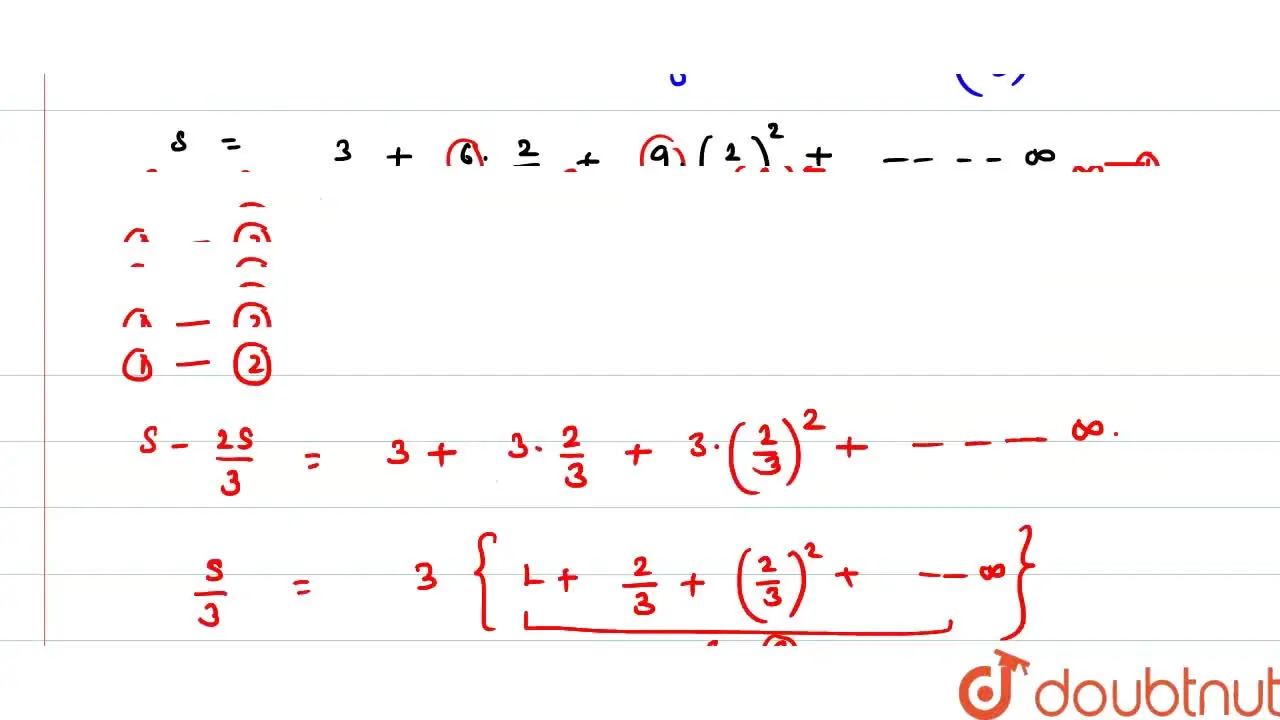The sum to infinite terms of the arithmetic - gemoetric progression 3,4,4,329,…… is equal to
16
18
24
27
The correct Answer is:D
Step by step video, text & image solution for The sum to infinite terms of the arithmetic - gemoetric progression 3, 4, 4, (32)/(9), …… is equal to by Maths experts to help you in doubts & scoring excellent marks in Class 12 exams.
Related Playlists
- BOOK - ML KHANNACHAPTER - PROGRESSIONS EXERCISE - PROBLEM SET - 4 (TRUE AND FALSE)1videos
PROGRESSIONS
- BOOK - ML KHANNACHAPTER - PROGRESSIONS EXERCISE - PROBLEM SET - 4 (FILL IN THE BLANKS)7videos
PROGRESSIONS
- BOOK - ML KHANNACHAPTER - PROGRESSIONS EXERCISE - PROBLEM SET - 3 (FILL IN THE BLANKS)1videos
PROGRESSIONS
- BOOK - ML KHANNACHAPTER - PROBABILITYEXERCISE - MISCELLANEOUS EXERCISE6videos
PROBABILITY
- BOOK - ML KHANNACHAPTER - PROPERTIES OF TRIANGLES EXERCISE - Self Assessment Test (Multiple Choise Questions)34videos
PROPERTIES OF TRIANGLES
Similar Questions
The sum of the infinite Arithmetico -Geometric progression3,4,4,… is _________.
View SolutionGiven that a4+a8+a12+a16=224, the sum of the first nineteen terms of the arithmetic progression
a1,a2,a3,…. is equal toView SolutionFind the 15th term of the arithmetic progression 10, 4, -2, ….
View SolutionIn an arithmetic progression containing 99 terms, then sum of all the odd numbered terms, the sum of all the odd numbered terms is 2550. If the sum of all the 99 terms of the arithmetic progression is k, then k100 is equal to
View SolutionThe sum of the first three terms of the arithmetic progression is 30 and the sum of the squares of the first term and the second term of the same progression is 116. Find the seventh term of the progression if its fith term is known to be exactly divisible by 14.
View SolutionFind the sum of indicated terms of each of the following geometric progression: 1+23+49+….,n terms and 5 terms
View SolutionAmong the following, which term belongs to the arithmetic progression −5,2,9,… ?
View SolutionThe sum of the first n-terms of the arithmetic progression is equal to half the sum of the next n terms of the same progression. Find the ratio of the sum of the first 3n terms of the progressionto the sum of its first n-terms.
View SolutionThe sum of the first 51 terms of the arithmetic progression whose 2nd term is 2 and 4th term is 8, is ________.
View SolutionThe sum of the terms of an infinite geometric progression is 3 and the sum of the squares of the terms is 81. Find the first term of the series.
View Solution


